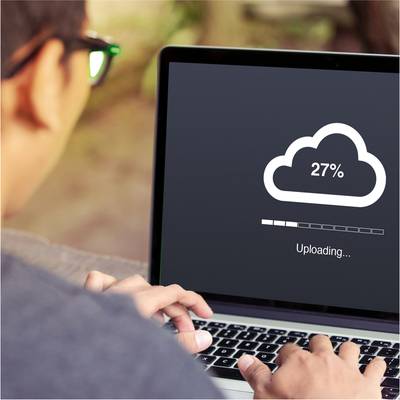Is a Plagiarism Check Allowed?

Many PlagAware users ask us: Is a Plagiarism Check allowed? Reason enough for us to shed some light on the legal aspects of a Plagiarism Check. In short: yes, a Plagiarism Check is allowed. But there are a few details to keep in mind.
What do students and educational institutions have to pay attention to?
Key facts at a glance
- check_circle Basically, a Plagiarism Check is allowed - in contrast to ghostwriting
- check_circle Students should be careful not to violate any blocking notice
- check_circle Universities should be granted rights of use for plagiarism testing , ideally in the examination regulations
A plagiarism search service that checks texts for uniqueness and similarity with other sources offers clarity and security. However, many users of such a service are unsure whether a Plagiarism Check is legal or contradicts legal regulations such as the test regulations, copyright or data protection.
This applies to students who want to have a bachelor's, master's or dissertation checked for plagiarism before submitting it to the professor. It is also important for universities and colleges that everything runs correctly if they check the academic work of the students for their uniqueness. You want to make sure that all requirements regarding data protection and data security are met and that the Plagiarism Check is carried out legally. Furthermore, the Plagiarism Check must be permitted from the point of view of copyright.
Plagiarism Check before submitting a scientific paper

According to the examination regulations, students undertake to write scientific papers independently and to provide them without outside help. You must confirm this by submitting a written insurance. Many students therefore wonder whether there can be legal problems if they do not check the sources and quotations alone, but an external service provider with a professional Plagiarism Check instruct.
Taking into account the examination law, the use and implementation of such a Plagiarism Check is permitted, especially since the aim is to examine your own text for similarity to other work.
It would be legally problematic if third parties make changes to the content of the work. This is not the case with a Plagiarism Check, because the student only receives feedback on whether he cited the sources correctly or whether the text contains plagiarism. Only the Plagiarism Check of a bachelor thesis, Master thesis or dissertation in terms of source information and citation in focus. From the students' point of view, a mere examination is therefore legal, especially since it merely provides feedback and reserves the right to make changes to the author.
Differentiation between Plagiarism Check and Ghostwriting
A Plagiarism Check, as performed by reputable plagiarism search services, requires a differentiation from problematic methods such as ghostwriting. While the use of a Plagiarism Check is permitted and safe for the exam candidate, ghostwriting can pose legal problems if the recipient of this service complies with the Rights of use misused. Accordingly, students who publish a scientific work of a ghostwriter as their own work and submit it for grading under their name violate the provisions of copyright law and the university's examination regulations. By submitting a third-party work, they oppose the affidavit that they must sign.
Submitting a scientific paper that the student did not write himself is punishable. A student who takes a Plagiarism Check before submitting his bachelor's thesis, master's thesis or dissertation, on the other hand, does not violate copyright law or the examination regulations.
 More problematic than the Plagiarism Check: Ghostwriting
More problematic than the Plagiarism Check: GhostwritingIn contrast to Ghostwriting, a Plagiarism Check is usually unpoblematic and allowed both legally and on the part of the examination regulations.
Thesis with blocking notice: use of plagiarism software allowed?
In individual cases, however, performing a Plagiarism Check can be problematic for other reasons. Students who write academic papers in cooperation with companies usually have to insert a blocking notice. With this declaration of confidentiality you undertake not to disclose sensitive company data to third parties. In the case of a blocking notice, the students are prohibited from publishing the content of this work including data, graphics and drawings for a certain period (= blocking period).
With a blocking notice, companies protect themselves from the fact that confidential company data reaches competitors and other unauthorized persons. A blocking notice usually contains a wording according to which the making of digital copies and transcripts is also prohibited. Exceptions to this rule require the approval of the company. For scientific work with a blocking notice, the authors should therefore contact the respective company for security to clarify whether the use of a Plagiarism Check is permitted. In this way, those affected can ensure that they do not violate the declaration of confidentiality. You should obtain written approval for the execution of a Plagiarism Check from the respective company and thereby secure yourself legally.
After consultation and with the consent of the company, the use of a Plagiarism Check may also be permitted for scientific work with a blocking notice. In order to exclude the risk of an inadmissible publication, it is important to choose a reputable provider who treats the data as strictly confidential and does not save it in its database.
Plagiarism control in teaching: student copyright
Scientific work by students is subject to the protection of copyright as personal intellectual creations. It is therefore important to ensure that the student grants usage rights. Otherwise, the transmission of a student's work to an external plagiarism search service and the storage of the associated data on the provider's servers would interfere with the copyrights (reproduction rights) of the respective student.
Universities and other universities regulate not only the submission of scientific papers in electronic form in the examination regulations, but also the conduct of an electronic plagiarism test. They require a declaration of consent from the students in order to protect themselves on the grounds of copyright. By signing this declaration of consent, the students agree that the university may compare the scientific work with other texts and use plagiarism software to check for matching passages.
Granting of rights of use through declaration of consent
With the availability of this declaration of consent, the use of a Plagiarism Software for the University allowed. The justification arises from the granting of rights of use in accordance with Section 31 of the Copyright Act (UrhG). Accordingly, the author, in this case a student, can grant the university the right to use the scientific work. With the declaration of consent, the student agrees to the verification of his work using plagiarism software and thus transfers a limited right of use to the university.
 The Plagiarism Check requires a declaration of consent
The Plagiarism Check requires a declaration of consentLegally, students are the originators of their bachelor's or master's thesis. Universities and schools therefore need a declaration of consent if they want to make Plagiarism Checks on the submitted work. As a rule, this declaration of consent is issued with the examination regulations.
However, this right of use is limited to the actions required for the purpose of the review:
- check_circle Transmission of the text to the search engine of the provider
- check_circle Use of a web-based plagiarism finder, provided that the work is not permanently stored in the database
However, archiving the data in the electronic database of a plagiarism search service is not necessary for Plagiarism Checking and is therefore inadmissible. Universities can rule out this problem by hiring a reputable provider. With the consent of the students, including the granting of rights of use, the universities are allowed to test plagiarism because there is a justification for this procedure.
Consider data protection and data security
Before commissioning a plagiarism search service, it makes sense to take a look at the data protection regulations and the general terms and conditions of the provider. It can be determined what happens to the texts after the order is placed, how long this content is stored and whether the person concerned can delete it at any time.
In the case of professional plagiarism search services, the protection of personal data and the data security of the work to be checked are ensured. Here the client always has complete control over the data and their deletion. A German provider like PlagAware stores customer data only on national servers and is therefore subject to the strict regulations of the European General Data Protection Regulation (GDPR) .
If students and universities choose a professional plagiarism search service based in Germany, they can ensure that the Plagiarism Check runs legally, i.e. in compliance with data protection rights and data security.
No permanent data storage and no data transfer to third parties
It is important to ensure that the uploaded work is deleted from the service provider's servers after checking the text. With reputable providers, the client can completely delete all data and texts from the system after the check and evaluation of the result. Alternatively, there is an automated deletion after a certain period of time. In addition, the work should not be stored in a plagiarism database that is used to search for plagiarism in other texts. This can rule out that the plagiarism software exposes saved work as plagiarism if the university or school uses the same plagiarism search service for this text as the student or pupil himself.
With professional plagiarism search services, students and schoolchildren do not have to worry about any problems because data is deleted. A reputable provider never uses the texts for purposes other than the Plagiarism Check. He does not keep these works in his database for publication or sale to third parties. Otherwise he would violate the data protection regulations. With a professional plagiarism software, the Plagiarism Check runs legally because the data of the work is neither stored nor passed on to third parties.
Conclusion: Plagiarism Check legal for students and universities
Taking into account critical aspects such as data protection, blocking notice and granting of usage rights , a Plagiarism Check is legal and therefore unproblematic. This applies regardless of whether exam candidates check their own texts for plagiarism before submitting them or whether professors want students to analyze their academic work. Accordingly, both students and schoolchildren as well as examiners from universities and schools can subject texts to a Plagiarism Check without hesitation, provided that they take into account the pitfalls mentioned.





